Truck shops and RV service centers see more screwed-up tow rigs come through their doors every month than most of us will see on the road in a lifetime. Over the past year or so, we’ve taken note of the most common. Many are not what you’d think.
Over-Compensating Weight Distribution
Weight distribution is extremely tunable. Those bars with the chains, they come in different strengths for different tongue weights. Most look at a set of bars and think bigger is better, but that is not true in this case. Check your tongue weight and purchase accordingly.
When loaded and with the correct bars, the goal is to have the load bars parallel with the frame of the trailer. Incorrectly set-up weight distribution will result in excessive porposing (bouncing between the trailer and truck) and in many cases, loss of steering as well as damage to the hitch and/or frame can occur.
Know Your Temps
Keeping an eye on a few pressures and temperatures will allow you to keep that powerplant humming along. At the bare minimum, every tow rig should have EGT (exhaust gas temperatures) and transmission temp gauges. High EGTs can melt pistons in even stock engines. Don’t assume that you’re safe just because you don’t have massive injectors or a racy tune. We’ve seen stock rigs hit well over 1,200 degrees on dozens of occasions.
Transmission temps should be kept below 210 degrees. At 270 degrees, most types of automatic transmission fluid will degrade rapidly, eventually requiring a full rebuild. It’s important to note that most factory transmission temperature gauges are fairly inaccurate. So, go aftermarket.
Fuel and oil pressure as well as oil temperature are good things to keep tabs on, as well, in the interest of engine longevity.
Brakes
If you’ve spent much time on mountain roads, you’ve undoubtedly seen a few trailer brakes smoke or go up in flames. For how important a job they do, trailer brakes are one of the most overlooked and neglected systems. The most common type is a brake drum design, applied using an electric magnet, cam, and arm system in place of the hydraulic wheel cylinder. This magnet is a wear item just like your tires or brake shoes. It needs to be checked and/or replaced often. When checking or servicing trailer brakes, they will generally need to be adjusted for wear, as well. Unlike truck brakes that self-adjust, most all trailer brakes do not. That’s your job.
Overloaded Vehicle
Heavy loads take a toll on every part of a tow rig. While most fullsize diesel trucks have plenty of motor to pull more than they should, it’s the rest of the truck that holds it back. Broken hitches, blown-out shocks, and worn bushings are very common on heavy tow rigs. Checking the suspension, hitch, ball mount, and frame for signs of stress should be done before every tow. A set of supplemental airbags is a great accessory to keep the load level.

| Ford Ranger With Fifth Wheel
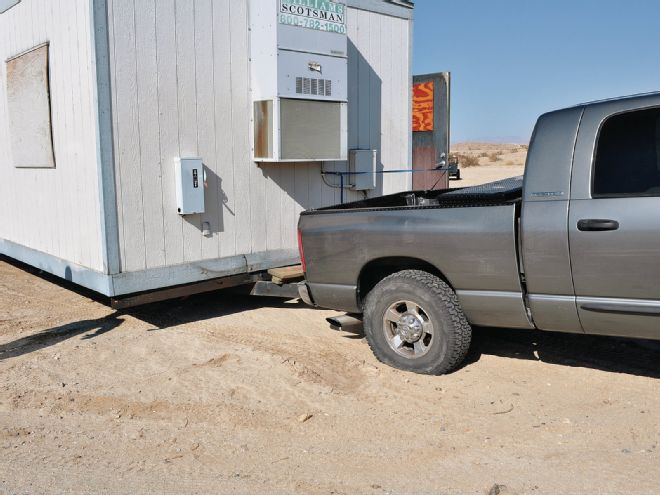
| Know what your vehicle can safely tow. While the Cummins under the hood of this Ram is plenty of motor for its load, the truck it’s in is simply not enough. Having more truck than is needed for the load is always a good idea.
Wrong-Size Ball Mount
Trailers are designed to travel level. When pitched up or down, the axles, tires, and brakes all take on added stress. Reduced braking ability, increased tire wear, and trailer damage can occur. Most pros carry multiple size and strength mounts, one for each trailer they regularly tow.

| Improper Tow Angle
Wrong Size Ball
As stupid as it sounds to tow with the wrong size ball, it was high on the list of common mistakes made by customers from just about every shop we’ve talked to. There are three different size balls for standard-type, bumper towing—1 7/8-inch, 2-inch, or 2 5/16-inch—and all three come in different weight ratings. Check the tongue or coupling on every trailer; it should have the ball size required stamped on it.

| Choose wisely. Refer back to page 42 for more information about hitch balls.
Lube it
Trailers are very commonly put away after use and forgotten. They require regular service just like the trucks towing them. Axles need to be greased regularly and the bearings should be checked at the same time. Any and all pivot points where steel meets steel (or where rubber bushings meet steel) must be greased, or if needed, replaced. Keep the tongue jack or landing gear greased, as well. It is never fun when a jack freezes up, and it always happens at the worst possible time and place.

| Hitch balls can and do wear through their couplers if not greased. It’s going to get your pants dirty at some point, but it is a very necessary part of towing.
Towing in “Race” Mode
Just because you can doesn’t mean you should. Race tunes are fun but should never be used for dragging a trailer up a grade or down a highway on-ramp. Broken engine internals, grenaded transmissions, or blown rearends are inevitable consequences.

| Resist the urge to turn the tuning up when towing. Your truck will thank you.
Take it Out Of Overdrive
Do your best to keep the engine in its powerband and the rpm high (but not too high). Correct axle gearing for the load and conditions, as well as keeping the transmission out of overdrive during hill climbs or in traffic, will benefit every part on a rig’s drivetrain. Keeping the engine revved up under load will reduce wear, keep temperatures down, and will increase oil flow—not to mention it will have more power, making for an easier, safer tow.

| Keep the overdrive off while climbing hills or merging with traffic. This will result in reduced engine and transmission wear, lower temperatures, and better throttle response.
Tire Pressure
Keeping both the trailer and tow rig’s tire pressures in check is a must. Correct pressures will result in better fuel mileage, fewer tire blowouts, and all and all, a better towing experience. Most trailers sit unused during the off-season, which degrades tires faster than if they were on the road. Check their condition and pressure before every trip.

| Check the manufacturer’s specification for tire pressure and stick to it.
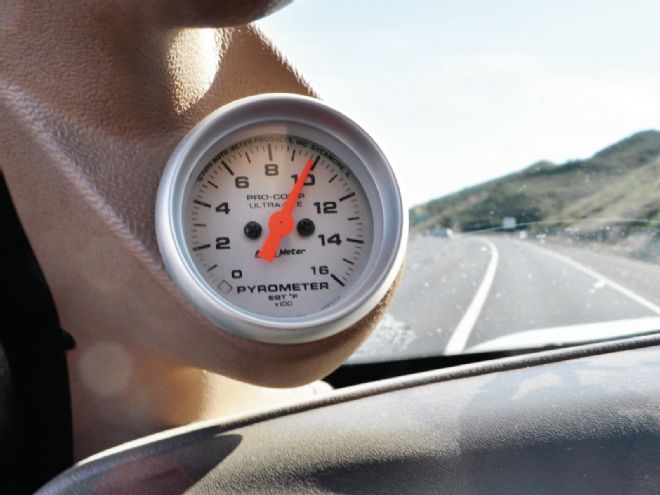
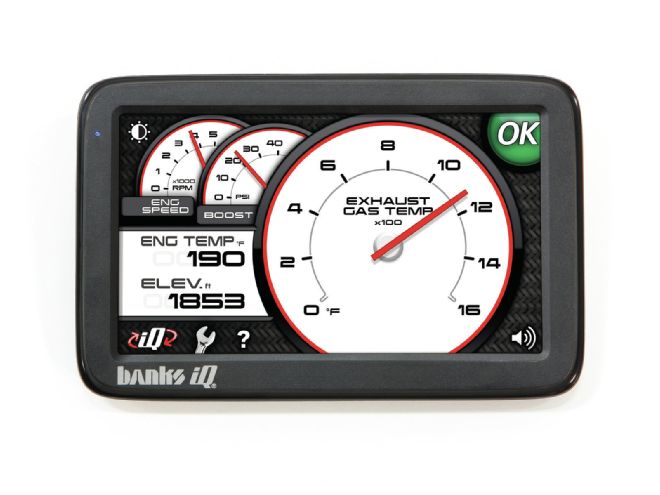
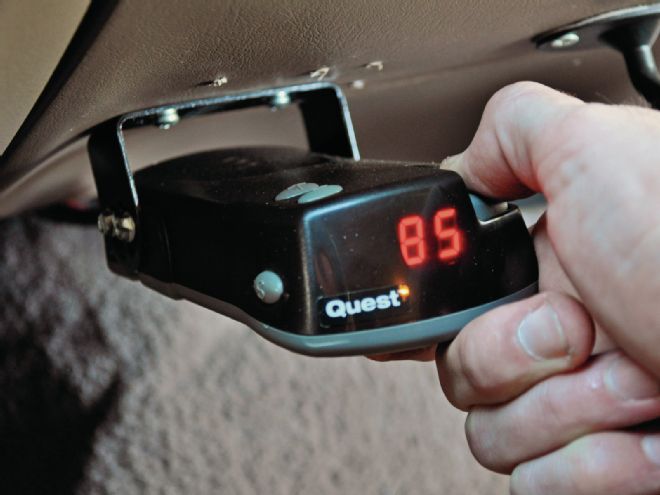
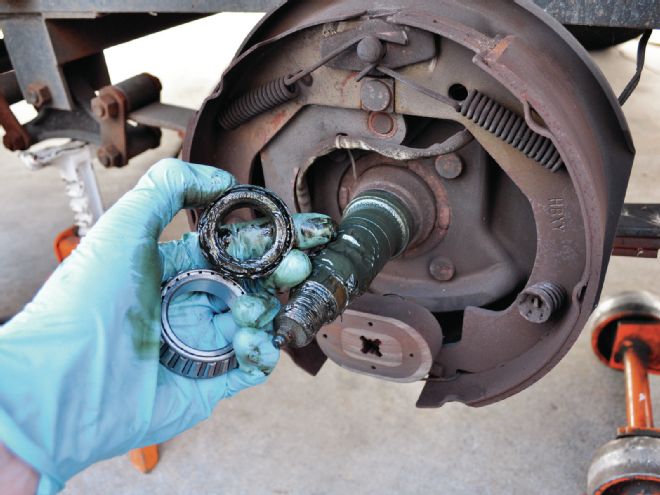
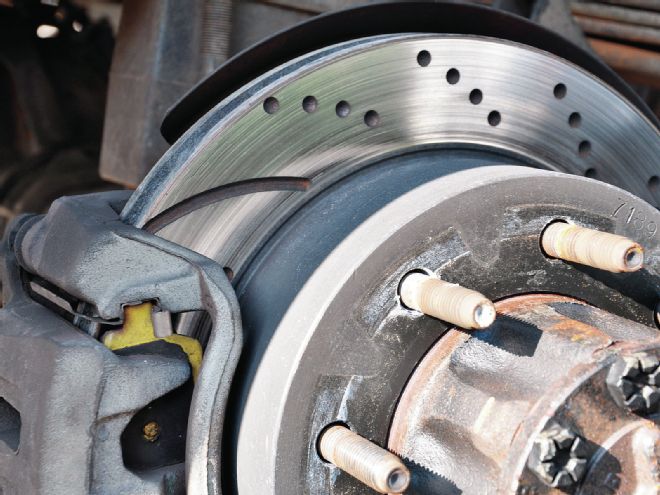
 | Know what your vehicle can safely tow. While the Cummins under the hood of this Ram is plenty of motor for its load, the truck it’s in is simply not enough. Having more truck than is needed for the load is always a good idea.
Wrong-Size Ball Mount
| Know what your vehicle can safely tow. While the Cummins under the hood of this Ram is plenty of motor for its load, the truck it’s in is simply not enough. Having more truck than is needed for the load is always a good idea.
Wrong-Size Ball Mount